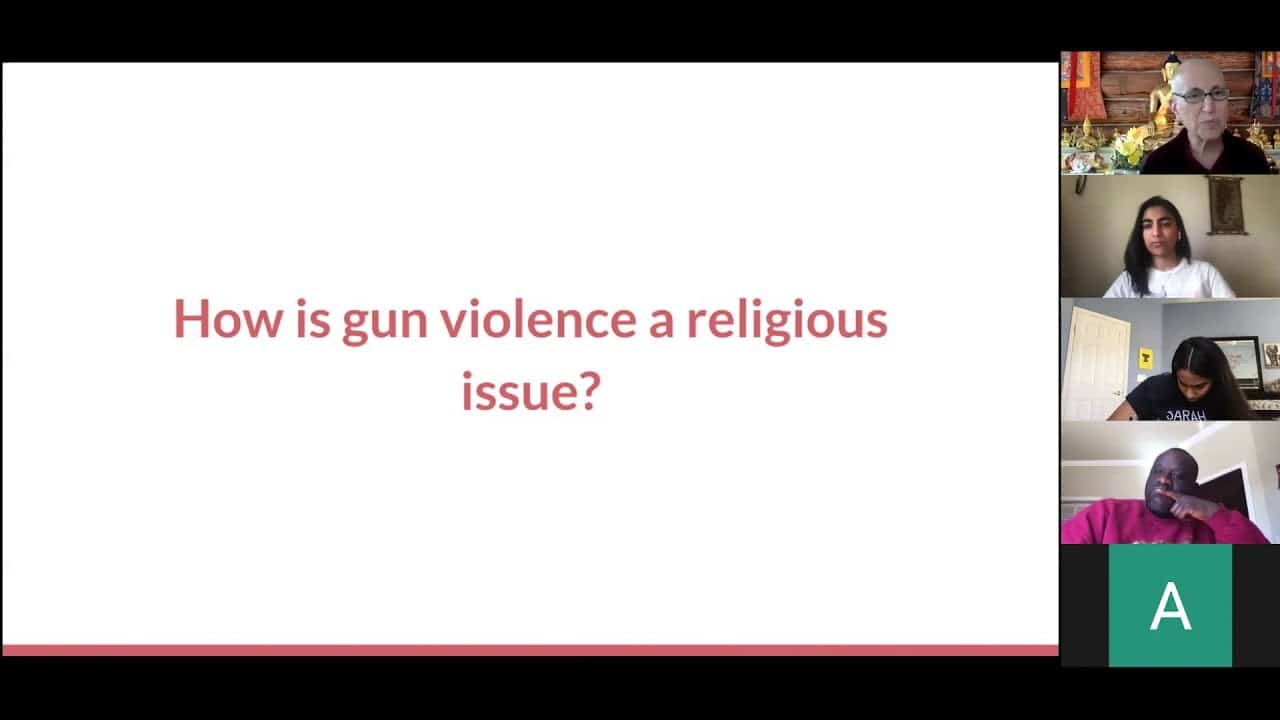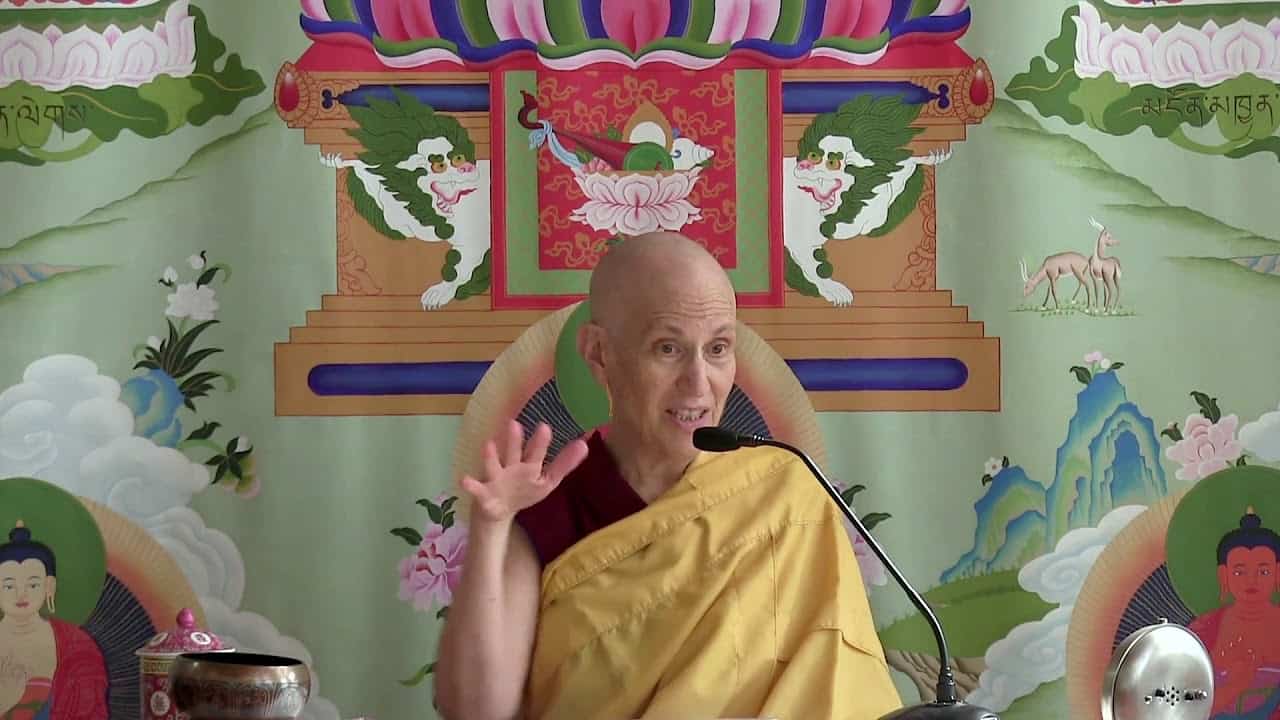Stinkin’ thinkin’

Our beloved teacher, Venerable Chodron, has used the term “stinkin’ thinkin’” in some of her teachings. Of course, the epitome of this is our belief that all things exist inherently from their own side and under their own power. This ignorance drives all our suffering in cyclic existence.
However, there are many layers of stinkin’ thinkin’, and I have spent a lifetime perfecting these distorted thoughts. I can truly say I have earned a Ph.D. in stinkin’ thinkin’. Instead of bringing me happiness it has resulted in anxiety and depression. During this time of global crisis, it is all too easy to fall into negative thoughts and emotions that don’t reflect reality.
In his book Feeling Good, Dr. David Burns identifies the ten most prominent types of distorted thinking. I have experienced all ten of these at one time or another:
- All-or-nothing thinking: You look at things in absolute, black and white categories. There are no shades of gray.
- Overgeneralization: You view a negative event as a never-ending pattern of defeat.
- Mental filter: You dwell on the negatives and ignore the positives.
- Discounting the positives: You insist that your accomplishments and positive qualities don’t count.
- Jumping to conclusions: You conclude things are bad without any definite evidence.
- Mind reading: You assume that people are reacting negatively to you.
- Fortune-telling: You predict that things will turn out badly.
- Magnification or minimization: You blow things way out of proportion or shrink their importance.
- Emotional reasoning: You reason from how you feel: “I feel like an idiot, so I must be an idiot.”
- “Should” statements: You criticize yourself or other people with “shoulds,” “shouldn’ts,” “musts,” “oughts,” and “have-to’s.”
- Labeling: Instead of saying, “I made a mistake,” you tell yourself, “I’m a jerk” or “a loser.”
- Blame: You blame yourself for something you weren’t entirely responsible for, or you blame other people and overlook ways in which you contributed to a problem.
Most of us tend to have a negativity bias. We have a stronger aversion to negative events than attachment to positive ones. Perhaps this kept us safe and allowed our species to survive when there were lots of saber-toothed tigers roaming the land, but I haven’t seen one of those in my neighborhood for quite some time. This negativity bias may keep us safe from danger, but it certainly doesn’t lend itself to developing compassion or happiness. His Holiness the Dalai Lama always reminds us that acts of kindness, although not newsworthy, far outweigh acts of harm.
So, in this time of great human suffering and uncertainty, there is nothing more important than working on my own mind. There is very little that I can do personally to overcome this pandemic and its terrible consequences. But I have control, if I choose to exercise it, over my response. And it all starts with abandoning my stinkin’ thinkin’.
Kenneth Mondal
Ken Mondal is a retired Ophthalmologist who lives in Spokane, Washington. He received his education at Temple University and University of Pennsylvania in Philadelphia and residency training at University of California-San Francisco. He practiced in Ohio, Washington and Hawaii. Ken met the Dharma in 2011 and attends teachings and retreats on a regular basis at Sravasti Abbey. He also loves to do volunteer work in the Abbey's beautiful forest.


